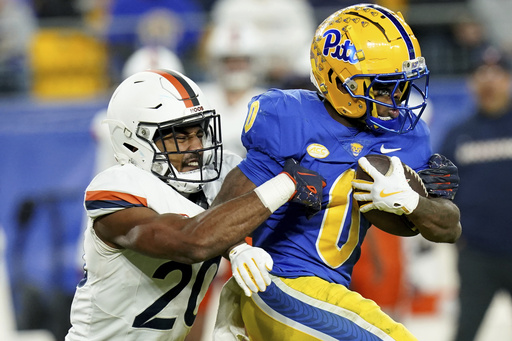
MINNEAPOLIS — Max Brosmer’s experience at New Hampshire featured spring practices that began at the crack of dawn, often enduring harsh weather conditions. Conducting these early morning workouts when temperatures plummeted and snowfall was frequent required the team to clear snow off the field ahead of time. With limited space to manage the snow, it was not uncommon for players to navigate over 10-foot snow drifts just to reach the practice area.
“If we had been able to practice indoors, we definitely would have taken that option, but I’ve learned a lot from those experiences,” reflected Brosmer, a new transfer to Minnesota. He emphasized the importance of different perspectives within a team, noting how such diversity can contribute to a tighter team bond. It’s a critical aspect that he believes can help the team grow and improve.
Transitioning to the Big Ten has been an eye-opener for Brosmer. In Division I FCS programs like his previous one, indoor facilities are rarely available, unlike the perks of being with a power conference team, which includes better resources such as meal plans, tutoring, and overall support. Now, Brosmer, a seasoned quarterback in his sixth year, has the opportunity to showcase his skills at a higher level of competition. His arrival has elevated the Gophers’ offensive strategy, allowing for a greater emphasis on passing plays, something the team has not done in nearly two decades.
Brosmer ranks highly in the conference, sitting seventh in pass efficiency and sixth in completion percentage. He has successfully thrown 14 touchdowns while keeping his interceptions to just four, in addition to rushing for four more scores. From the very beginning, he expressed his desire to command the offense on the field, impressing coaches with his dedication to the game plans and film studies.
“Working with him has been a unique experience; it’s a dialogue unlike any I’ve had with a player before,” shared co-offensive coordinator and quarterback coach Greg Harbaugh.
In the defensive lineup, starting cornerbacks Jack Henderson and Ethan Robinson have also made a significant impact. Henderson joined from Southeastern Louisiana for his second season, while Robinson arrived from Bucknell in his first year. Their inclusion has infused the Gophers’ secondary with a valuable FCS experience. Coach P.J. Fleck pointed out that the decision to recruit these players was not only about their athletic skills but also their character, highlighting the importance of having players who are thankful for their opportunity within the program.
After a matchup against Rhode Island, a noteworthy encounter involved Rams head coach Jim Fleming discussing recruiting practices with Fleck, expressing his disapproval over Gophers’ assistants attempting to recruit players on the field immediately after the game.
“To me, that approach is just not right,” Fleming commented in a follow-up discussion.
For programs like Minnesota, which often find themselves in a middle ground regarding recruiting, players from FCS can be a hidden jewel. Brosmer is not alone; many teams across the nation have tapped into the FCS talent pool to find impactful players. Nebraska’s Brian Buschini gained recognition as an All-American with Montana, while Michigan State’s Luke Newman and Rutgers’ Dymere Miller also made the leap from FCS programs.
Wisconsin has similarly benefitted from FCS talent with contributions from players like John Pius and Elijah Hills, as well as Nyzier Fourqurean, who transitioned from a Division II setting. Badgers coach Luke Fickell noted the fierce dedication found in FCS players, often driven by a desire to prove themselves when making such transitions.
Other power conferences are recognizing this trend. Colorado’s Deion Sanders brought notable talents from Jackson State, including two-way star Travis Hunter. Several players now making headlines in bigger programs once played in the FCS, reinforcing the idea that talent exists at all levels of competition.
Pittsburgh has also welcomed skilled players like Desmond Reid, who joined from Western Carolina and has made a profound impact in the ACC. Reid leads in total scrimmage yards and has achieved milestones that not only showcase his talent but his determination as well—despite being overlooked by many for his stature.
“There are athletes everywhere, regardless of the level they play at,” said offensive coordinator Kade Bell, who championed bringing Reid to the Panthers.
In the continuous quest for talent, the college football landscape is evolving, demonstrating that with the right opportunities, players from all backgrounds can make a significant mark.
